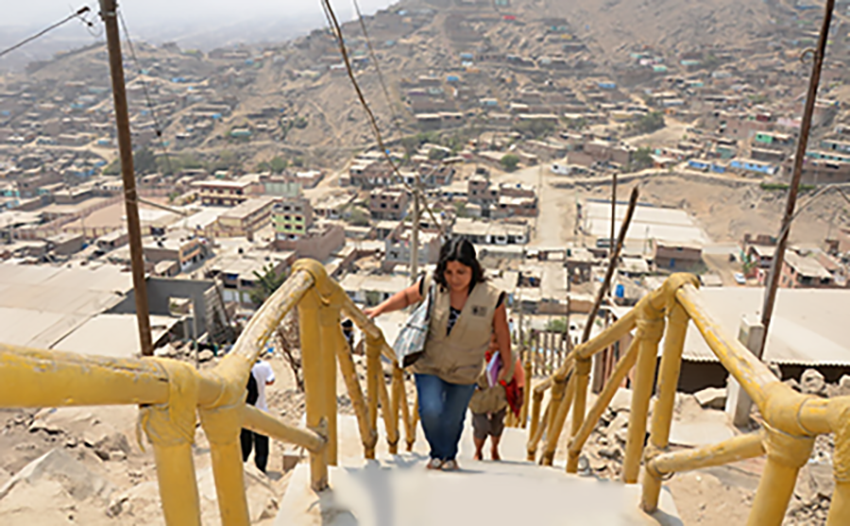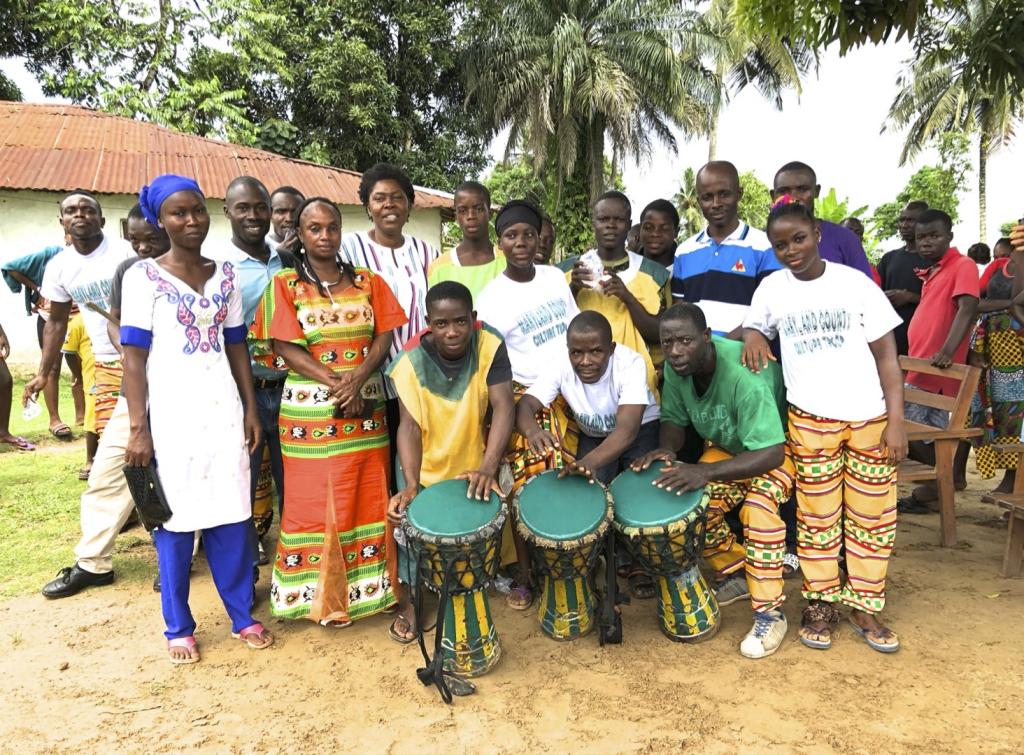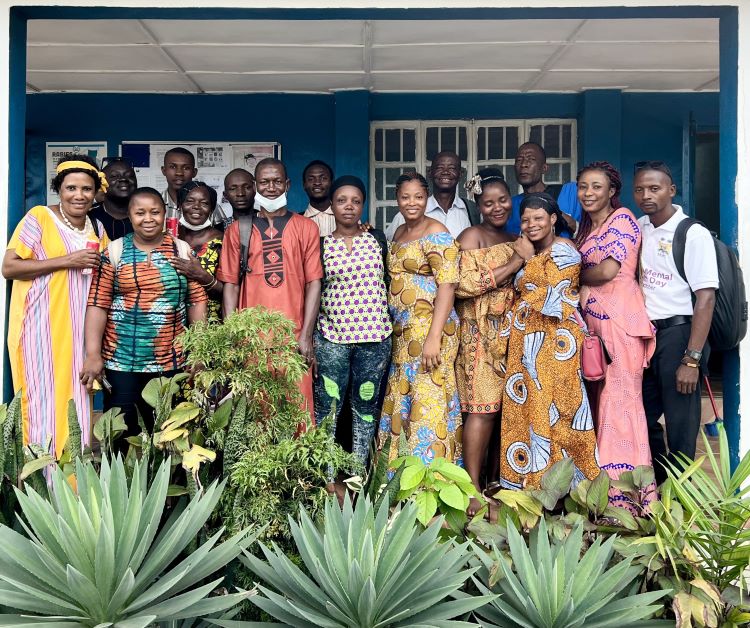Dr. Mario Pagenel Fellowship in Global Mental Health Delivery

Latin America & The Caribbean
HAITI
Zanmi Lasante (ZL) also known as PIH-Haiti:
The mental health program was formally launched in 2010 following the Haiti earthquake, through which ZL started significant emergency response in which mental health services were integrated into primary and HIV care for an area of over 1.5 million people. Over the past decade, ZL has served as a model health system for the nation through specific care delivery pathways that focus on curriculum development, adaptation, training and task sharing of care for depression, epilepsy, psychotic disorders, child and adolescent mental health, trauma and substance use.
Click here to learn more
MEXICO
Compañeros En Salud (CES) also known as PIH-Mexico:
CES works with a range of staff, including Mexican physicians entering a social service year (pasantes), community mental health workers (cuidadoras) and community health workers (acompaňantes) with psychologist supervision, who visit patients in a task-shared primary care system to support people with comorbid conditions. CES’s mental health program strengthens the capacity of health facilities to provide care for people with mental health and neuropsychiatric conditions (MNS), train cuidadoras to screen and treat depression, and implement psychoeducation programs to increase mental health awareness in 10 communities. To meet the high burden of illness within their communities, CES trains physicians and community health workers to properly diagnose and treat the most common mental illnesses.
Click here to learn more
PERU
Socios En Salud (SES) also known as PIH-Peru:
SES has evolved from a robust psychosocial program for people living with TB to a mental health program integrated across life stages and morbidities. The team works in close partnership with the Peruvian government’s arm for mental health care as well as the National Institute of Mental Health (NIMH) to integrate mental health care into services for maternal and child health, TB, chronic care, and COVID-19 response. SES conducts a multitude of programs including an intervention for perinatal women of six global sites funded by WHO’s EQUIP (Ensuring Quality in Psychological Support) program and has developed a chatbot to screen mental health conditions for people in remote areas or isolation during COVID.
Click here to learn more
Photo credit: PIH Cross-Site Mental Health Team
The mental health team visit a patient in Carabayllo, a district in Lima, Peru. March 2022, Photo credit: PIH Cross-Site Mental Health Team
East & Southern Africa
LESOTHO
Bo-Mphato Litšebeletsong tsa Bophelo also known as PIH Lesotho:
PIH Lesotho’s mental health program started in 2017 with screening for mental health conditions among patients with multidrug-resistant tuberculosis (MDR-TB) and the integration of an early childhood development (ECD) intervention. Mothers who receive post-natal care are screened, treated for depression, and referred to the district hospital as needed. Most recently, the team has also worked closely with the Ministry of Health to integrate mental services into primary care. In addition, the team has developed innovative staff wellness, peer support, wellness centers, PFA, counseling, trainings, and expanded human resource capacity.
Clear here to learn more
MALAWI
Abwenzi Pa Za Umoyo (APZU) also known as PIH-Malawi:
APZU’s mental health program was developed in 2016 to focus on mental health integration into APZU’s Integrated Chronic Care Clinic (IC3). The IC3 clinic primarily treats people with psychosis, schizophrenia, epilepsy, and mood disorders, often associated with site effects from HIV or epilepsy medications. The mental health program incorporates depression case-finding and treatment into HIV services, primary care, and maternal care. In 2019, APZU also implemented Group Problem Management Plus (gPM+) psychological intervention to treat perinatal depression.
Click here to learn more
RWANDA
Inshuti Mu Buzima (IMB) also known as PIH-Rwanda:
With few specialists serving more than nine million people, hospitals and clinics in rural Rwanda are faced with a high burden of neuropsychiatric problems. The Mentorship and Enhanced Supervision at Health Centers for Mental Health (MESH MH) model integrates core packages of services for severe mental disorders into routine primary health care, and provides training to primary care nurses under supervision from public district mental health staff, together allowing for affordable community-based care and effective treatments to be provided by non-specialists. IMB also provides extensive community outreach and social support, organized family-based psychoeducation and patient self-help group, and income-generating activities for patients’ social reintegration.
Click here to learn more

Hategekimana Bashar (left), members of his family, and Mental Health Social and Community support Coordinator Sifa Dorcas (second from right) chat outside Bashar’s home in Rwanda in 2016. Photo by Bob Muhumuza.
West Africa
LIBERIA
PIH-Liberia
PIH Liberia’s mental health program started in 2016 by providing necessary mental health care across ten sites to people living with severe psychosis, bipolar disorder, epilepsy, depression, social suffering, and other mental health conditions. Due to a shortage of mental health staff, local clinicians work in a task-sharing referral mental health system and collaborate closely with the Ministry of Health to integrate mental health into primary care and drive innovation. The program works closely with law enforcement, traditional healers, and community health teams to bring treatment to homeless patients and others who would not normally have access and reintegrate them back into society through psychosocial rehabilitation. The mental health program, in collaboration with its partners, also generates social awareness campaigns to reduce the stigma surrounding mental illness in the region.
Click here to learn more

PIH Liberia Mental Health team. Image captured by Giuseppe Raviola.
SIERRA LEONE
PIH-Sierra Leone
Partners In Health Sierra Leone mental health started in 2017 to address critical human resource and mental health infrastructure gaps in the country. In 2019, the team held a cross-site CETA (Common Elements Treatment Approach) training in Sierra Leone and began implementing CETA to decentralize community care and create a strong referral system. As part of their crisis response, the team has also established a PFA (Psychological First Aid) hotline to provide remote psychosocial support, including people directly affected by COVID-19, and successfully transitioned crucial mental health services to be delivered remotely. Until recently, the oldest psychiatric hospital in sub-Saharan Africa - Sierra Leone’s Public Psychiatric Teaching Hospital (SLPTH) - went without crucial resources for decades. Together with the Ministry of Health and Sanitation (MOHS), PIH is renovating the hospital by strengthening referral networks, ensuring access and services for severe mental health conditions, and establishing basic needs such as electricity, running water, and dignified patient wards. Building on this, in 2022, PIH also supported the development of a psychiatry residency training program as their flagship to support both specialist and non-specialist mental health training in the country.
Click here to learn more

PIH Sierra Leone Mental Health team. Image captured by Giuseppe Raviola.